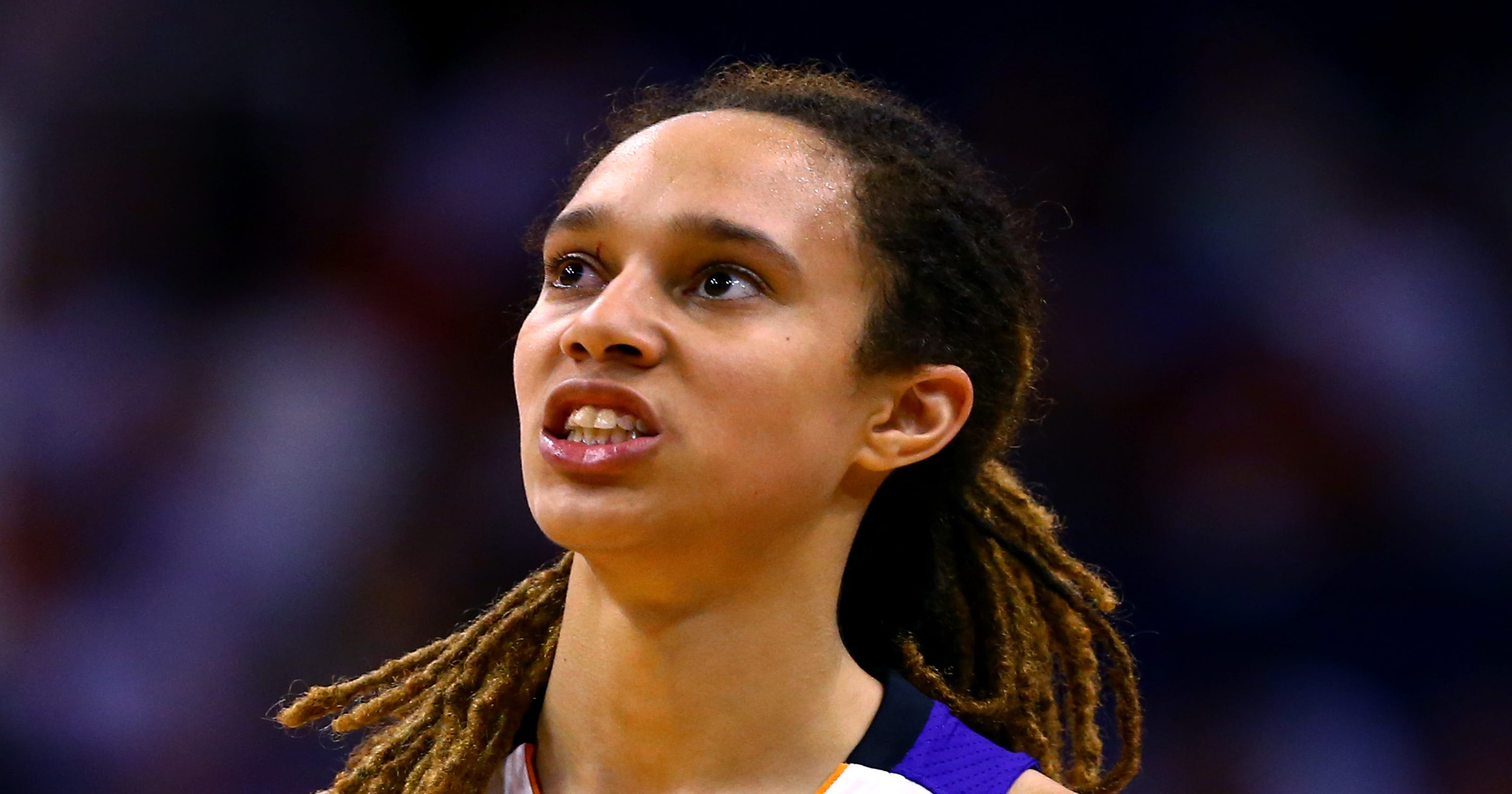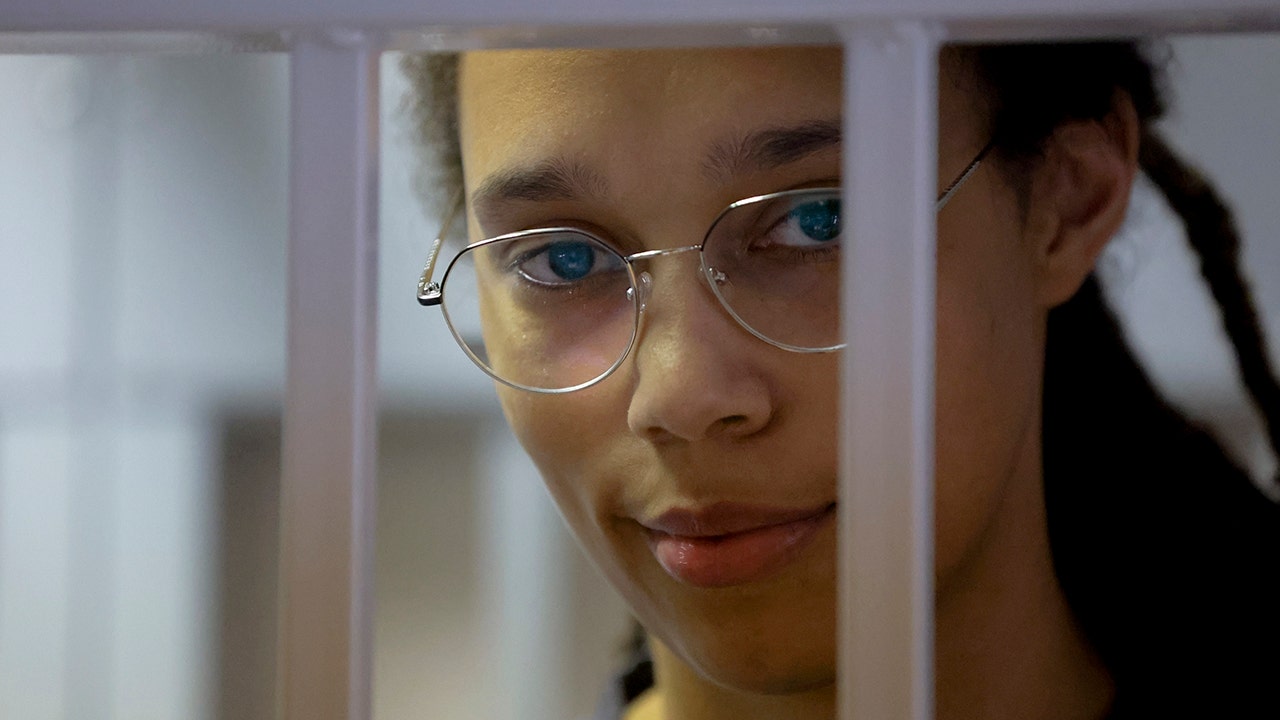Unraveling The Mystery: Is Brittney Griner Transgendered?
In recent years, the conversation around gender identity and representation has gained significant traction, particularly in the world of sports. One name that has emerged in this dialogue is Brittney Griner, a professional basketball player known for her remarkable skills on the court and her advocacy for LGBTQ+ rights. As discussions surrounding her identity continue to evolve, many fans and observers are left wondering: is Brittney Griner transgendered? This inquiry not only highlights the importance of understanding gender identity but also the impact it has on representation and acceptance within society.
Brittney Griner's journey through the world of sports has been nothing short of extraordinary. Standing tall at 6 feet 9 inches, she has shattered records and broken barriers, becoming a symbol of strength and resilience for many. However, as her public persona grows, so does the scrutiny regarding her personal life, particularly her gender identity. The question of whether Brittney Griner is transgendered has sparked curiosity and debate, urging us to delve deeper into her story and the broader implications it carries for the LGBTQ+ community.
As we explore the question, "is Brittney Griner transgendered?" it is essential to approach it with respect and an open mind. Understanding an individual's identity is crucial for fostering a more inclusive environment, not just in sports, but across all facets of society. By examining her background, achievements, and the societal context surrounding her, we can gain clarity on this topic and contribute to a more informed conversation around gender identity and representation.
- Nikki Catsouras Wreck A Tragic Tale Of Loss And Controversy
- Understanding Shiloh Jolie Is Shiloh Jolie Trans
Who is Brittney Griner? A Brief Biography
Brittney Griner is a professional basketball player who has made a significant impact both on and off the court. She was born on October 18, 1990, in Houston, Texas. Known for her impressive height and athleticism, Griner has become a household name in women’s basketball. She played college basketball at Baylor University, where she led her team to a national championship in 2012 and was named the NCAA Player of the Year.
| Personal Details | Bio Data |
|---|---|
| Name | Brittney Griner |
| Date of Birth | October 18, 1990 |
| Height | 6 ft 9 in (2.06 m) |
| College | Baylor University |
| WNBA Team | Phoenix Mercury |
| Position | Center |
| Career Highlights | 2× WNBA Champion, 8× WNBA All-Star |
What has Brittney Griner Achieved in Her Career?
Brittney Griner's career has been marked by numerous accolades and milestones that highlight her talent and dedication to the sport. Some of her notable achievements include:
- Two-time WNBA Champion (2014, 2015)
- 2014 WNBA Rookie of the Year
- Multiple All-Star selections, showcasing her consistent performance
- Gold medalist with the USA Women's National Basketball Team
- Induction into the Naismith Memorial Basketball Hall of Fame
Is Brittney Griner Transgendered? An Exploration
The question of whether Brittney Griner is transgendered often arises due to her androgynous appearance and her advocacy for LGBTQ+ rights. However, it is essential to clarify that Brittney identifies as a cisgender woman, meaning her gender identity aligns with the sex she was assigned at birth. Griner has openly discussed her sexuality as a lesbian, using her platform to support the LGBTQ+ community.
- Discover The World Of Movies With Mkv Moviepoint Com
- Exploring The Life And Influence Of Ollie Watkins Father
What Does Brittney Griner Say About Gender Identity?
Brittney Griner has been vocal about her experiences and the challenges she has faced as an openly gay athlete. She emphasizes the importance of being true to oneself and encourages others to embrace their identities. Griner has stated that she wants to use her visibility to advocate for LGBTQ+ youth and to foster acceptance and understanding within sports and society.
How Has Brittney Griner Influenced LGBTQ+ Representation in Sports?
Griner's openness about her identity has paved the way for greater representation of LGBTQ+ individuals in sports. Her success and visibility serve as an inspiration for many athletes who may feel marginalized or underrepresented. By standing up for her rights and those of others, Griner has become a role model for aspiring athletes, encouraging them to embrace their authentic selves.
What Challenges Has Brittney Griner Faced?
Despite her achievements, Brittney Griner has faced numerous challenges throughout her career. Some of these include:
- Facing discrimination and prejudice as an openly gay athlete
- Dealing with media scrutiny regarding her appearance and identity
- Overcoming societal stereotypes and biases in sports
Is Brittney Griner Transgendered? Clarifying Misconceptions
In conclusion, it is vital to clarify that Brittney Griner is not transgendered; she identifies as a cisgender woman. The curiosity surrounding her identity highlights the importance of understanding and respecting gender identities. By supporting individuals like Griner, we contribute to a more inclusive environment that celebrates diversity and promotes acceptance.
What Can We Learn from Brittney Griner’s Journey?
Brittney Griner's journey is a powerful reminder of the importance of authenticity and the need for representation in sports. Her story encourages us to foster dialogue about gender identity and to challenge stereotypes that exist within society. By embracing diversity and supporting individuals from all backgrounds, we can create a more inclusive world for everyone.
Final Thoughts: Embracing Diversity in Sports and Beyond
As we continue to navigate the complexities of gender identity and representation, it is crucial to approach these discussions with empathy and understanding. Brittney Griner's impact extends far beyond the basketball court, serving as a beacon of hope for many. By recognizing her identity and supporting her journey, we can contribute to a more accepting and inclusive society.
Article Recommendations
- Molly Aubreigh Wyatt The Inspiring Journey Of A Bully Survivor
- Unveiling The Life Of Mellstroys Wife A Journey Of Love And Resilience



Detail Author:
- Name : Jakob Ledner
- Username : sharon76
- Email : katlynn99@yahoo.com
- Birthdate : 1981-01-28
- Address : 96426 Abigail Rapid Apt. 512 Lake Charleneshire, CA 78412
- Phone : +18202149553
- Company : Prohaska, Dibbert and Senger
- Job : Ship Captain
- Bio : Et assumenda nam sint officiis nemo culpa et. Sed nisi rem praesentium minus cupiditate voluptates nemo. Dolor accusamus exercitationem est laboriosam eum.
Socials
linkedin:
- url : https://linkedin.com/in/marquise836
- username : marquise836
- bio : Suscipit quia qui aut deserunt velit tempora.
- followers : 2297
- following : 2409
twitter:
- url : https://twitter.com/mbreitenberg
- username : mbreitenberg
- bio : Quaerat iure voluptas cum iste perferendis modi. Autem numquam vel adipisci consectetur excepturi. Est ut quas eum amet voluptatem incidunt.
- followers : 2842
- following : 2875
facebook:
- url : https://facebook.com/breitenbergm
- username : breitenbergm
- bio : Quam odit incidunt cumque omnis libero.
- followers : 992
- following : 156